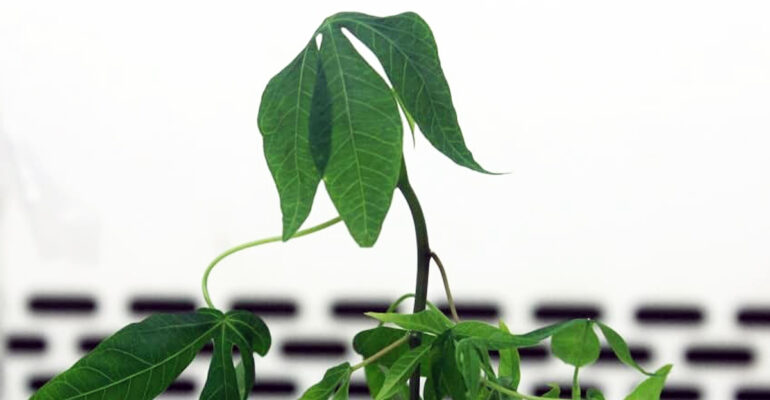IPB Expert Develops Virus-free Cassava Seeds

One of popular, but less developed carbohydrate sources is cassava. Indonesia is the third biggest producer of cassava in the world, but still imports from other countries. The low quality of local cassavas will surely decrease their value, one instance is when there is a viral or bacterial infection.
Dr. Nurul Khumaida, a cassava expert from IPB University (IPB) said that cassavas are easily cultivated by farmers, because it’s easy to get the planting materials and cassavas are quite resistant to environmental threats. “Regardless, we need to keep maximizing the potentials of cassavas with right cultivation techniques” she said.
Dr. Nurul Khumaida, who is a lecturer in Agronomy and Horticulture Department and the Main Commissioner of CV. Catalyst Agro Inovasi (CV CAI) with her business, which is worked by her and her colleagues, made an innovation to produce quality cassava seed, to make the plant free from pests and diseases, through in vitromethod.
“In vitro seeds are seeds developed by one of plants’ organs, which are planted on tissue culture medium. The medium is given nutrients in the form of agar, according to the needs of the plant,” she added.
According to her study, in vitro seeds have several advantages, including true to type (same as the parent), free from viral infections, not limited to seasons, and easy to transport to faraway destinations.
The seeds provided are motherplants, mini cut offs (setek), and ready-to-plant seeds. Motherplants are brooding seeds which can be subcultured via in vitro as a source for reproduction by breeders, sold in bottles. Mini setek is an ex-vitro seed in the form of a small cut-off from the plant, and the last one is ready-to-plant seeds which can be planted in cultivation lands. (Ard)



